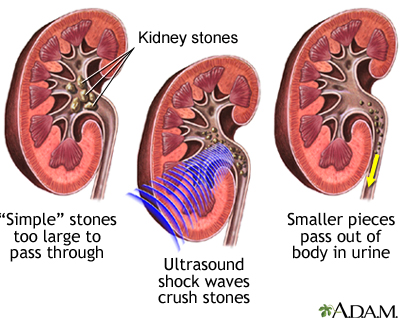Comprehensive Guide to Kidney Stones vs UTI: Diagnosis, Creates, and Relief
Comprehensive Guide to Kidney Stones vs UTI: Diagnosis, Creates, and Relief
Blog Article
Checking Out the Symptoms and Causes of Kidney Stones in Comparison to Urinary System Tract Infections: An In-depth Overview
The exploration of kidney rocks and urinary system tract infections (UTIs) discloses a complex interplay of signs and symptoms and underlying causes that call for mindful evaluation. While both problems can lead to hematuria, they provide unique professional features and develop from different etiological aspects. Recognizing the nuances of each problem is crucial for effective diagnosis and administration. What are the essential distinctions in their signs and symptoms, and how might these inform therapy approaches? The answers to these inquiries may give important understandings right into the avoidance and treatment of these typical urological issues.
Summary of Kidney Stones
Kidney stones, also known as kidney calculi, form when specific substances in the urine crystallize and aggregate, causing the development of tough deposits within the kidneys. These rocks can differ in size, varying from a grain of sand to a golf sphere, and can be composed of numerous products, the most common being calcium oxalate, uric acid, struvite, and cystine. The development of kidney stones is influenced by several elements, including dietary routines, fluid intake, and hereditary proneness.
Signs and symptoms of kidney rocks might include extreme pain in the back or side, blood in the pee, nausea or vomiting, and regular peeing, specifically as the stone relocates through the urinary tract. Medical diagnosis usually entails imaging studies such as ultrasound or CT scans, along with urinalysis to determine the rock's structure.
Therapy options differ based upon the dimension and type of rock, as well as the seriousness of signs and symptoms (Kidney Stones vs UTI). Small stones might pass normally with increased liquid intake, while bigger stones might call for clinical interventions such as lithotripsy or medical removal. Comprehending the pathophysiology and danger aspects related to kidney rocks is vital for efficient prevention and monitoring
Review of Urinary System Infections
Urinary system infections (UTIs) are usual bacterial infections that affect any type of component of the urinary system, consisting of the kidneys, ureters, bladder, and urethra. They primarily happen when microorganisms, frequently from the intestinal system, get in the urinary system, leading to inflammation and infection.
The frequency of UTIs is especially higher in females than guys, largely due to physiological differences, such as a shorter urethra. Threat elements include sex, particular contraceptive approaches, urinary retention, and dehydration. The diagnosis of UTIs is generally confirmed through urine tests, which may reveal the presence of bacteria, white blood cells, or red blood cells.

Symptoms of Kidney Stones
The pain related to kidney rocks can manifest in various ways, typically leading people to look for clinical focus. One of the most usual signs is serious pain, typically local in the lower back or side, which may emit to the abdomen or groin. This pain, usually referred to as sharp or cramping, can happen suddenly and might change in intensity.
Additionally, people may experience hematuria, or blood in the pee, which can range that site from tiny amounts to visible staining. This symptom might be accompanied by adjustments in urinary habits, such as raised frequency or necessity, in addition to discomfort during urination. Queasiness and vomiting are also widespread, commonly resulting from the body's response to intense pain.
In many cases, individuals might experience high temperature and chills, especially if a secondary infection establishes as a result of the obstruction triggered by the rocks. Overall, the combination of serious discomfort, hematuria, altered urinary patterns, and intestinal signs and symptoms can provide considerable insight right into the visibility of kidney stones, requiring punctual clinical evaluation and intervention. Comprehending these signs is critical for prompt diagnosis and effective administration of the condition.
Symptoms of Urinary Tract Infections
Infections within the urinary system system frequently present an array of distinct signs and symptoms that can considerably influence every day life. The most usual signs and symptoms consist of a consistent desire to pee, frequently accompanied by a burning sensation during urination, known as dysuria. Individuals might additionally experience raised regularity of peeing, generating percentages of urine each time.
Other notable symptoms consist of over cast or fetid pee, which may indicate the presence of microorganisms or pus. In many cases, pee may appear pink or red as a result of the existence of blood, a condition understood as hematuria. In addition, people may experience pelvic pain or pressure, which can even more exacerbate the sensation of seriousness.
Systemic signs may additionally materialize, such as fever, cools, and fatigue, specifically if the infection has actually ascended to the this contact form kidneys. It is vital to identify these signs early, as neglected urinary system infections can result in more serious problems. Kidney Stones vs UTI. Motivate medical attention is encouraged when these signs are observed, allowing for proper diagnostic analysis and treatment to alleviate pain and prevent additional health problems
Sources Of Each Problem
Often, kidney rocks and urinary system tract infections occur from distinctive yet sometimes overlapping causes that can impact people differently. Dehydration, inadequate liquid consumption, and high-sodium diet regimens can exacerbate these conditions, advertising crystallization within the urinary tract.

Recognizing these distinctive reasons is vital for avoidance and treatment. Kidney Stones vs UTI. While lifestyle alterations might alleviate the danger of kidney stones, ideal health and prompt therapy of urinary tract infections are essential for lowering their reappearance and connected complications
Verdict
In recap, kidney stones and urinary system system infections present distinctive signs and underlying causes. Kidney rocks are characterized by serious pain and metabolic variables, while urinary system tract infections largely include bacterial infections bring about urinary necessity and discomfort. Although both conditions can cause hematuria, their formation devices differ significantly. Recognizing these differences is vital for effective medical diagnosis and treatment, inevitably enhancing client results for those affected by either condition.
The expedition of kidney stones and urinary system system infections (UTIs) reveals a complicated interaction of signs and symptoms and underlying causes that require mindful examination.Urinary system infections (UTIs) are usual bacterial infections that influence any part of the urinary system, consisting of the kidneys, ureters, bladder, and urethra.Regularly, kidney rocks and urinary anchor tract infections develop from distinctive yet often overlapping reasons that can affect individuals in a different way.In recap, kidney rocks and urinary system system infections present distinct signs and underlying causes. Kidney stones are defined by extreme discomfort and metabolic variables, while urinary tract infections mainly include bacterial infections leading to urinary seriousness and pain.
Report this page